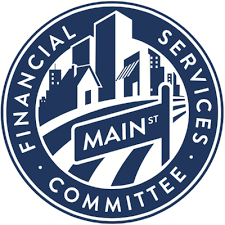
All bills passed mark-up despite the opposition of the securities trade group against one of them.
The House Financial Services Committee held its mark-up on February 27 and 28.
Mark-up is, “The process by which congressional committees and subcommittees debate, amend, and rewrite proposed legislation,” according to the Senate website.
In lieu of the mark-up, the American Securities Association (ASA) sent a letter on February 25, 2020, to the House Financial Services Committee regarding two bills that the committee will consider during mark-up.
The ASA’s were in support of one bill and in opposition to another.
“The American Securities Association writes to express our support for H.R. 5932 and our opposition to H.R. 5929, both of which the House Financial Services Committee is expected to markup this week,” the letter states.
Chinese Debt Transparency Act of 2020
The letter noted in part.
“The ASA is strongly supportive of H.R. 5932, the ‘Chinese Debt Transparency Act of 2020.” This legislation would ensure greater transparency with respect to financing provided by the Chinese government. The lack of transparency in China’s financial arrangements makes it tremendously difficult for the United States, and other global actors, to accurately monitor global financial risk. H.R. 5932 would give U.S. officials at international financial bodies an important mandate to use their voice and vote in support of practices that will hold China accountable. We also recommend that the committee thinks about having the Treasury department relabel China from a ‘Developing Country’ to a ‘Developed Country’ for purposes of assessing its eligibility to receive World Bank loans.”
Shareholder Political Transparency Act of 2020
“The ASA would also like to express our strong opposition to H.R. 5929, the ‘Shareholder Political Transparency Act of 2020.’ While the bill’s title seems innocuous, H.R. 5929 represents a direct threat to the First Amendment rights of American citizens that wish to express their freedom of speech and engage in political activity. The legislation arbitrarily targets businesses – whose First Amendment rights have been affirmed by the Supreme Court – with a regulatory regime that ultimately seeks to silence their speech. Supporters of this legislation have been crystal clear about its intent: it would allow politicians and special interest groups to keep track of political opponents and target them for future boycotts and harassment. The bill is incompatible with the Constitutional rights of Americans and would lead to even greater political polarization throughout our country.
“Moreover, the requirement for public companies to disclose certain political spending in their quarterly reports violates the Supreme Court’s longstanding ‘materiality’ standard for corporate disclosure. This information does not help shareholders make informed investment and voting decisions and would simply impose another costly reporting burden upon businesses and shareholders.”
ASA
The ASA, “is the only trade association that exclusively represents the wealth management and capital markets interests of regional financial services firms,” according to its website.
The site continued, “ASA members are small and regional financial services companies who advise hardworking and retired Americans how to create and preserve wealth, provide Main Street businesses with access to capital and advisory services, raise capital for schools, hospitals, cities, and states and work with institutional investors to increase investment returns. In short, we are at the core of job creation, wealth preservation, and increasing prosperity.”
Mark-up Results
ASA’s influence was only partial.
A total of seven bills were debated in the House Financial Services Committee on February 27 and February 28.
All seven bills passed, according to a press release from the committee.
Another trading related bill that passed was the H.R. 5930, the Workforce Investment Disclosure Act, a bill introduced by Congresswoman Cindy Axne, a Democrat from the State of Iowa. That bill would require the Securities and Exchange Commission (SEC) to require public companies to disclose how they train, compensate, and otherwise manage their employees.
All the bills now move to the full House for a vote before meeting an uncertain fate in the Senate.









